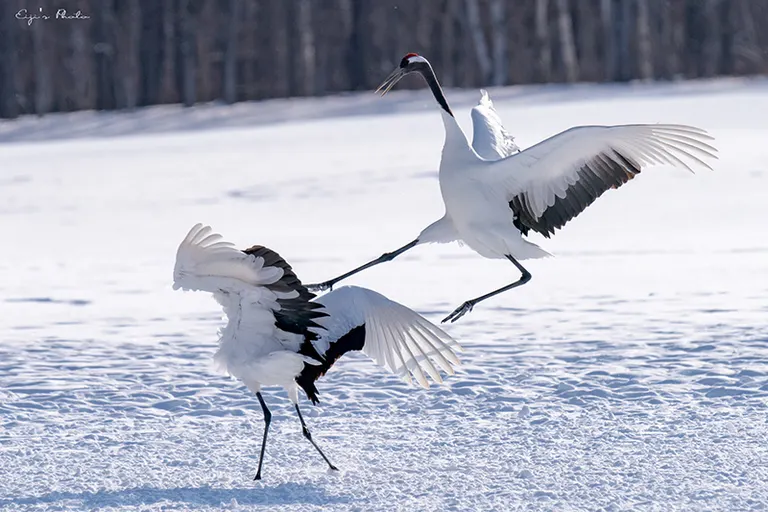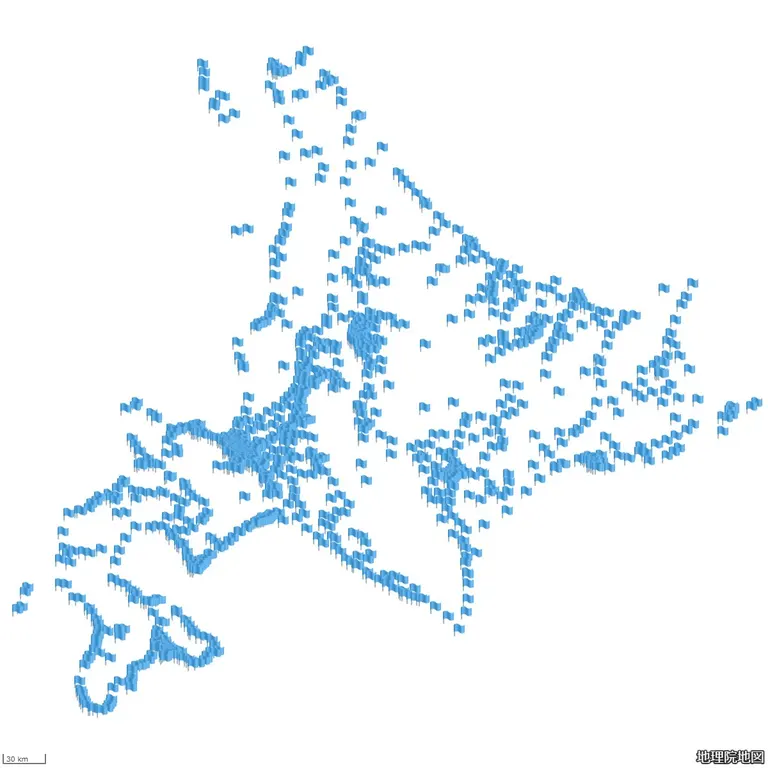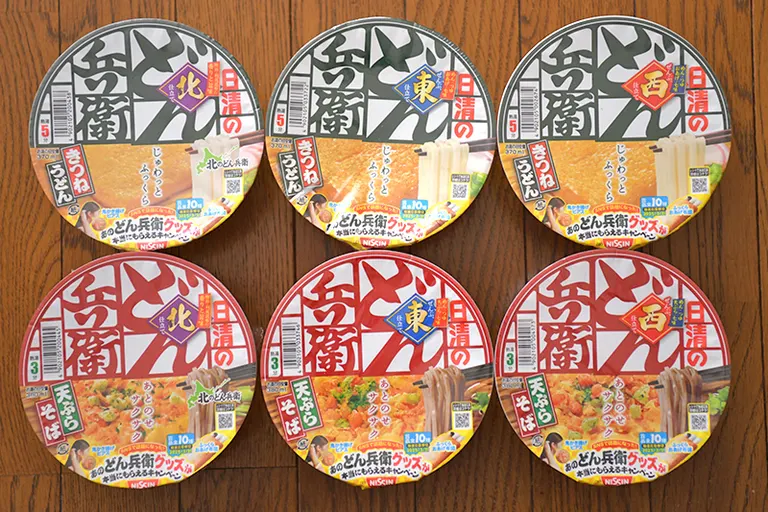
ARTICLES
We Compared Donbei Flavors! Just How Different Are the Hokkaido, East Japan, and West Japan Versions?
Taste Test: Donbei Tempura Soba
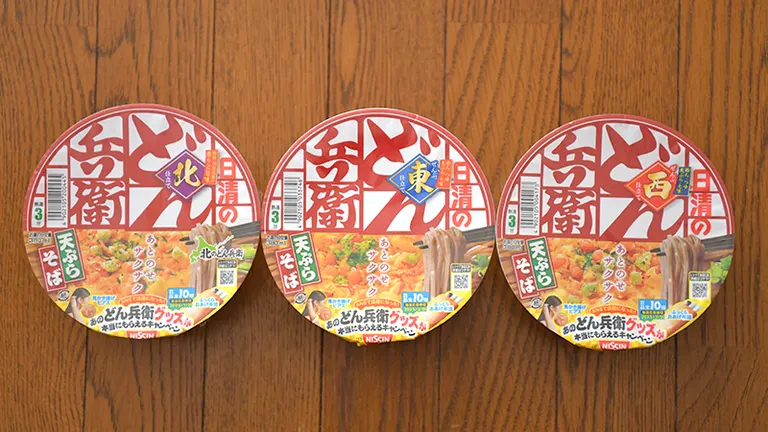
From left: Hokkaido, East Japan, and West Japan Tempura Soba
For the "Donbei Tempura Soba" comparison, we'll start with the Hokkaido "Kita no Donbei." It uses bonito flakes and Rishiri kombu, giving it a gentle aroma of the sea. The flavor is strong in the characteristic umami and sweetness of kombu dashi, which pairs exceptionally well with the shrimp in the tempura!
Next is the East Japan version. The "fish dashi" flavor from the regular and soda bonito is prominent, with the soy sauce taste following closely behind. Overall, it has a clean aftertaste and pairs perfectly with the noodles.
Finally, the West Japan version. Here, the flavor of the regular bonito and kombu dashi is more forward than the soy sauce. Just like with the kitsune udon, the wa-sansho pepper condiment is a great spice! Sprinkling it on tightens up the overall flavor and creates a rich taste.
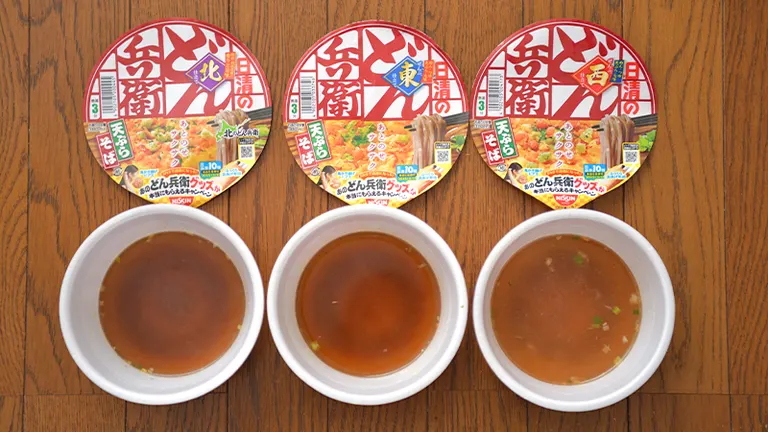
That was delicious
The Surprisingly Different Regional Donbei
Here are our thoughts after comparing the Hokkaido, East Japan, and West Japan "Donbei"!
・Hokkaido "Kita no Donbei": A mellow Rishiri kombu dashi with a sweet soy sauce flavor.
・East Japan: A strong soy sauce flavor based on a fish dashi.
・West Japan: A light and elegant flavor where the fragrant dashi is the star.
It seems the main reason for the regional flavor differences is the change in dashi ingredients. It's often said that "strong flavors are preferred in the Kanto (East) region, while light flavors are favored in the Kansai (West) region." With Hokkaido joining the mix, the local Donbei now comes in a variety of flavors.
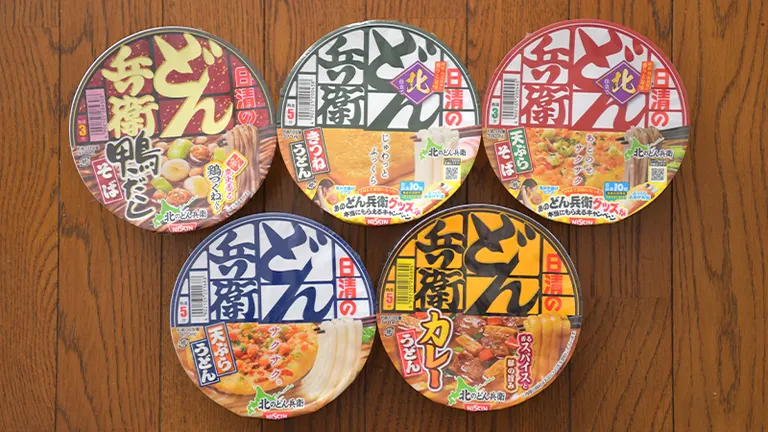
The Hokkaido-exclusive "Kita no Donbei"
By the way, the Domingo editorial team tried the "Donbei Taste Comparison Set" (1 set, 12 servings). The curry udon also has significant differences; for instance, the Hokkaido version uses pork, while the others use beef. It's fun to discover all the different variations.
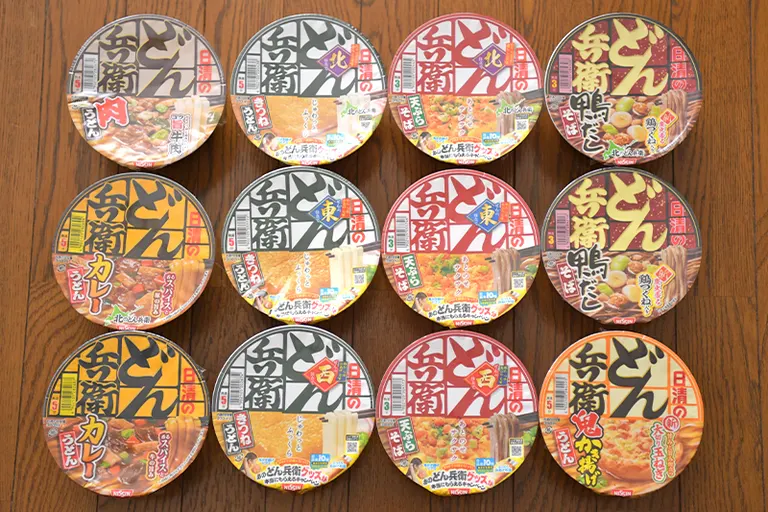
Donbei Taste Comparison Set
Why not enjoy the different regional flavors for yourself!?
※All information is current as of December 2024.
※Please note that information may change. Please check official websites for the latest details.
- 1
- 2






